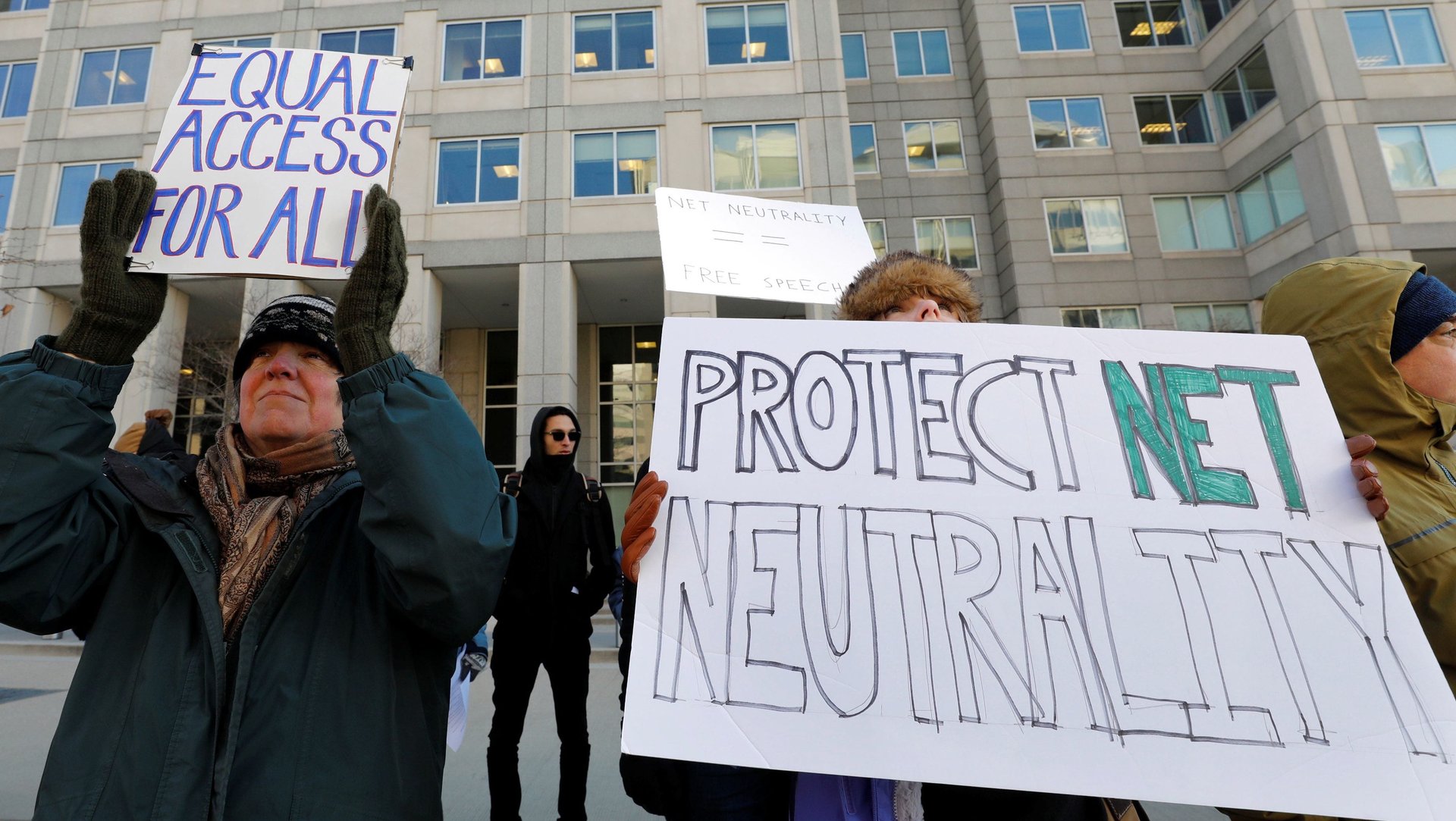Nearly every Senate Democrat backed a bill to restore net neutrality
More than 40 Senate Democrats, along with their party colleagues in the House, introduced on Wednesday (March 6) legislation that would reverse the Federal Communications Commission’s decision to repeal net neutrality rules instated in 2015 by the Obama administration.


More than 40 Senate Democrats, along with their party colleagues in the House, introduced on Wednesday (March 6) legislation that would reverse the Federal Communications Commission’s decision to repeal net neutrality rules instated in 2015 by the Obama administration.
House speaker Nancy Pelosi introduced the three-page bill, along with Senate minority leader Chuck Schumer and a number of other lawmakers including senator Ron Wyden and representative Anna Eshoo. The “Save the Internet Act” is being introduced in both chambers, with hearings starting as early as next week.
Net neutrality rules ensure the telecom companies like Verizon and AT&T that provide internet access treat all content equally, and that they do not selectively block or slow down certain types of content. Without net neutrality, customers might see “fast lanes” and higher rates for certain types of content, or even for wireless data overall.
“Saving the internet has been a grassroots movement if there ever was one,” Schumer said during a press conference on Wednesday. The 2017 decision by the FCC to remove rules that protected net neutrality, which was led by Republican Ajit Pai, has attracted widespread outcry, with Americans on both sides of the aisle overwhelmingly opposing it. Schumer said that “average folks” do not want their internet costs to go up, or their “freedom to be constricted.” Several states have introduced their own net neutrality rules to counteract the FCC decision.
The lawmakers behind the “Save the Internet Act” railed against the FCC and Pai, and underlined that the “free internet” is a pillar of democracy, freedom, and entrepreneurship, and that it helps people get services and jobs. Restoring net neutrality rules puts a “cop on the beat” of protecting consumers, said Yvette Clarke, congresswoman from New York.
Democrats previously tried to reverse the FCC’s decision last year, and the Senate passed the resolution to do so, but the House did not take up the issue. The success of this new attempt depends on how the Senate Republicans approach the bill.